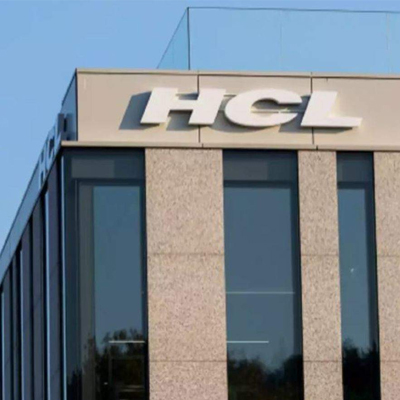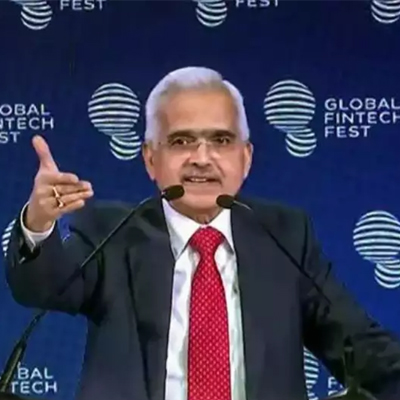Cybersecurity in Healthcare: Combating Threats and Protecting Patient Data
2.jpg)
Deepak Rathore, AGM (IT) at Rajiv Gandhi Cancer Institute & Research Centre
The digital landscape and the nature of cybercrime have changed dramatically. Cybercriminals are increasingly attacking the healthcare sector, having previously focused exclusively on financial organisations. This trend might be attributed to the enormous value of patient data, which is greatly sought after across numerous industries and, regrettably, is sometimes easier for attackers to obtain than financial data. According to the ERCI (European Repository of Cyber Incidents), cybercrime predominantly impacts the healthcare sector, accounting for 14.2% of all attacks on critical infrastructure.
The looming vulnerability exposes a critical question for the healthcare industry: can it effectively leverage the advantages of new technologies while simultaneously mitigating the growing cybercrime threat?
Disparities in Regulations and Practices Across Regions
In well-developed regions like the US and Europe, longstanding regulations like HIPAA (Health Insurance Portability and Accountability Act) and GDPR (General Data Protection Regulation) have mandated strong data protection and privacy measures in healthcare settings. These regulations have undoubtedly played a part in mitigating the risk of cybercrime. However, the situation in developing nations presents a different image.
As technology, AI, machine learning, and data science advance worldwide, healthcare institutions in developing countries quickly adopt IT solutions. This digital transformation promises to revolutionise healthcare service delivery and patient safety. Healthcare institutions, on the flip side, are primarily concerned with improving clinical outcomes and patient care, frequently overlooking cybersecurity. This phenomenon is particularly prevalent in hospitals, where significant investments are made in advanced medical equipment and techniques while cybersecurity measures still need to be improved. Emergency departments at hospitals have been a tough hit, with 20% reporting treatment delays owing to cybersecurity breaches. Hence, the crucial question arises of whether these nations are truly equipped to handle the associated cybersecurity challenges.
“Healthcare institutions often neglect cybersecurity despite being custodians of vast amounts of invaluable patient data, which is a prime target for cybercriminals.”
Until recently, unlike the United States and Europe, there were no rigorous legislative requirements for patient data protection and privacy in developing countries such as India. Many healthcare businesses have taken a careless approach to cybersecurity as a result of the absence of regulatory pressure.
Regulatory Measures and the Rise of the CISO
Fortunately, the tide is turning. Recent government measures, such as India's Digital Personal Data Protection Act (DPDPA), attempt to considerably improve data security and privacy by imposing large fines for noncompliance. This is causing a much-needed transformation in the healthcare industry, requiring firms to prioritise data security and invest in compliance procedures.
The Chief Information Security Officer (CISO) role is becoming increasingly crucial in this new landscape. CISOs are tasked with building robust cybersecurity teams and implementing effective measures like access control, data encryption, and regular security audits to protect sensitive information within healthcare institutions.
Strengthening the Stance on Cybersecurity
Here are some key recommendations for healthcare institutions to bolster their cybersecurity posture:
Prioritise Cybersecurity
Integrating robust cybersecurity measures into the organisational culture elevates its importance alongside clinical excellence and patient care.
Invest in the Security Infrastructure
Allocating appropriate resources towards implementing next-generation security solutions, including firewalls, data encryption, and intrusion detection systems strengthen cyber defences with next-gen firewalls, encryption, and intrusion detection.
Cybersecurity Awareness Training
Implement ongoing cybersecurity training programmes for staff to equip them with best practices and cultivate a security-conscious environment within the organisation.
65% of Indian healthcare enterprises have established regular cybersecurity workshops for their employees, increasing awareness and decreasing successful phishing attempts.
Incident Response Planning
Developing comprehensive plans for responding to cyberattacks to minimise damage and ensure a rapid recovery.
Compliance with Regulations
Staying updated on evolving data privacy regulations like DPDPA and ensuring compliance to mitigate legal and financial risks.
These steps can help healthcare institutions move forward with confidence into the digital future, leveraging the power of technology to provide exceptional patient care while safeguarding sensitive data from cyber threats. The healthcare business must view cybersecurity not as a hindrance but as a crucial component of establishing a safe and trustworthy healthcare ecosystem.
The Road Forward: Robust Cybersecurity in Healthcare
The digital revolution in healthcare presents an exciting opportunity to revolutionise patient care and service delivery. Advanced technologies like AI and data analytics hold immense promise for improving diagnostics, treatment plans, and the overall patient experience. However, without strong digital security measures in place, this incredible period may be overshadowed by the ongoing threat of data breaches and the exploitation of highly sensitive patient information.
Cybercriminals view patient data as a valuable commodity, and successful attacks can have devastating consequences, not only for healthcare institutions facing financial and reputational damage but also for patients whose private health information is compromised. To navigate this evolving landscape effectively, healthcare institutions must prioritise cybersecurity.
Healthcare can harness the power of technology while creating a secure and trustworthy environment for patients by proactively implementing next-generation security solutions, instilling a culture of cyber awareness among employees, and aligning compliance efforts with regulations such as the Digital Personal Data Protection Act (DPDPA).
The Journey Into Industry
Mr. Deepak Rathore is a well renowned expert in the convergence of digital health and cybersecurity. Based in Delhi, India, he brings a wealth of experience to his current role as Assistant General Manager(AGM)–IT at the prestigious Rajiv Gandhi Cancer Institute & Research Centre.
Mr. Deepak's expertise spans a diverse range of healthcare IT domains. He is a trusted advisor and consultant, guiding healthcare institutions in developing effective health IT strategies. His deep understanding of digital health technologies empowers him to navigate the complexities of implementing and securing these solutions.
Mr. Rathore’'s passion lies in ensuring the secure and efficient use of technology to improve patient care. His knowledge of cybersecurity safeguards plays a crucial role in protecting sensitive patient data, a critical concern in today's digital healthcare landscape.
Beyond his current role, Mr. Deepak Rathore is a thought leader and active contributor to the advancement of digital health in India. His combined expertise in digital health, cybersecurity, and healthcare strategy positions him to make significant contributions to this rapidly evolving field.
.jpg)
.jpg)
.jpg)
.jpg)



